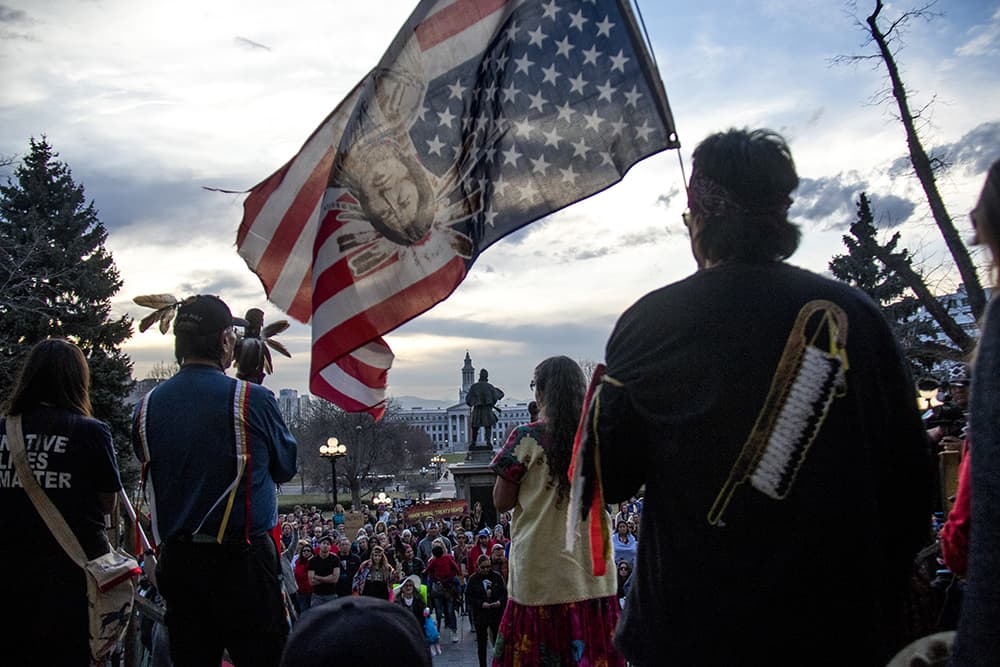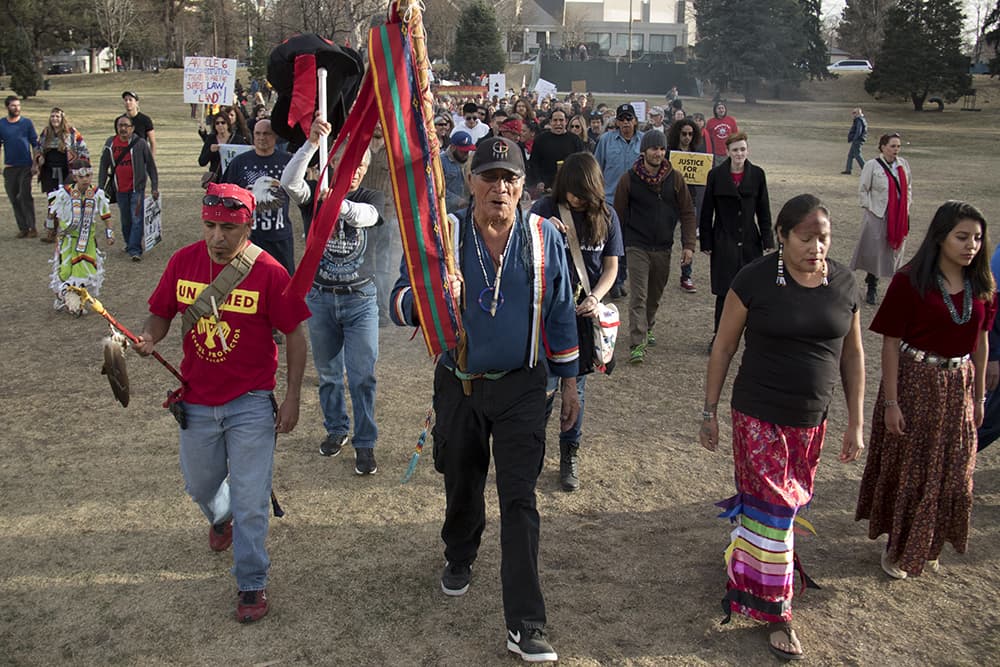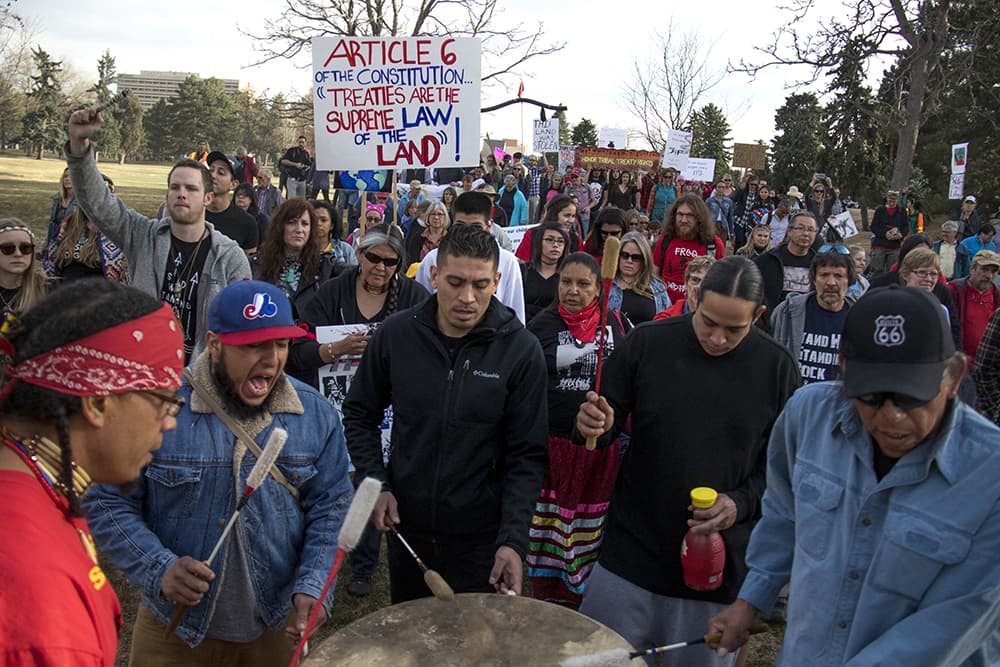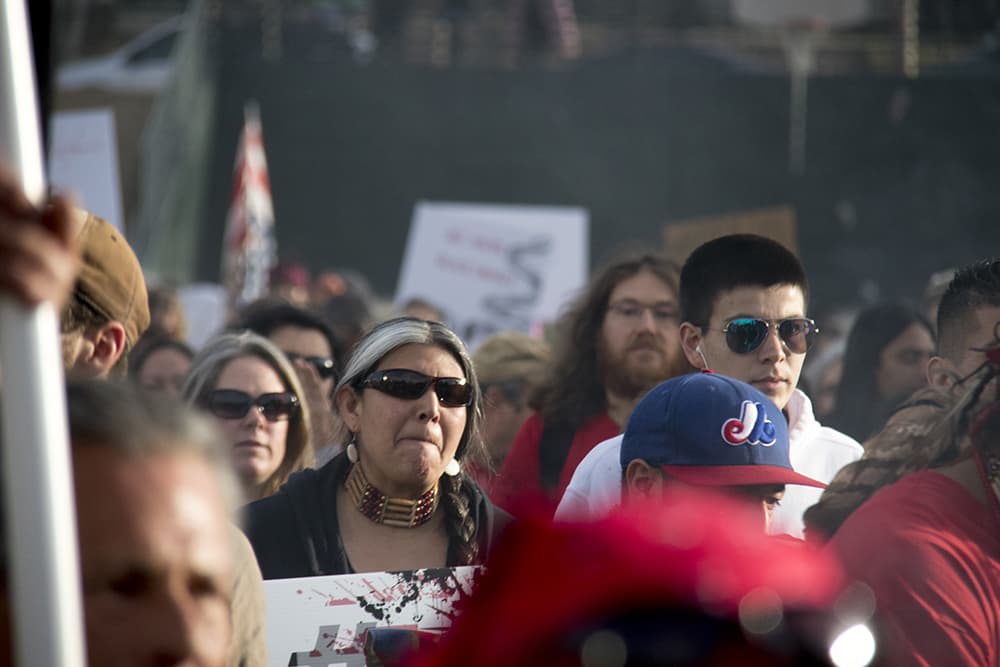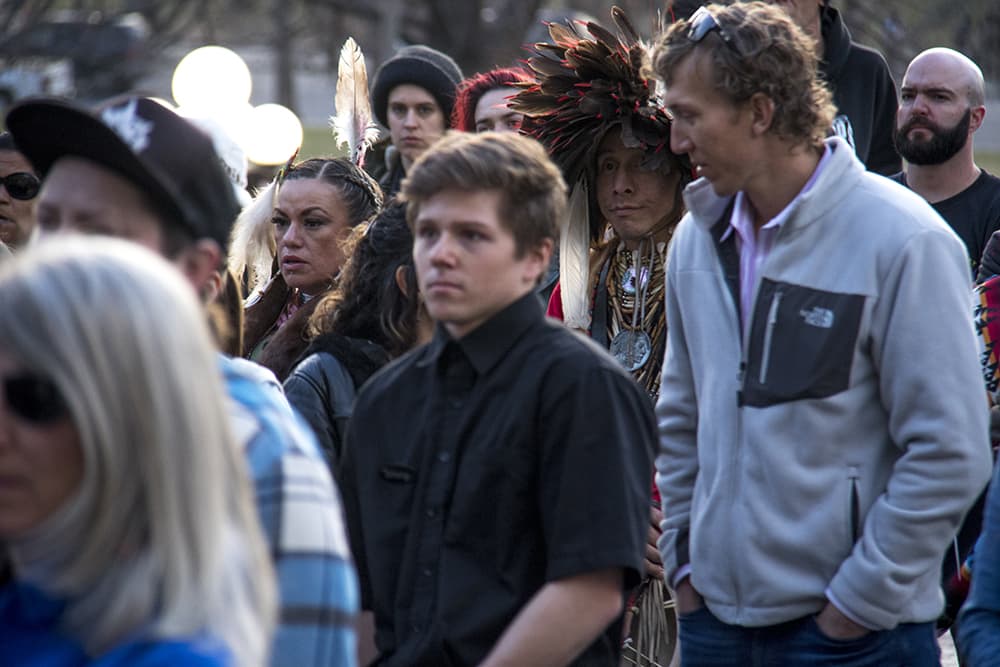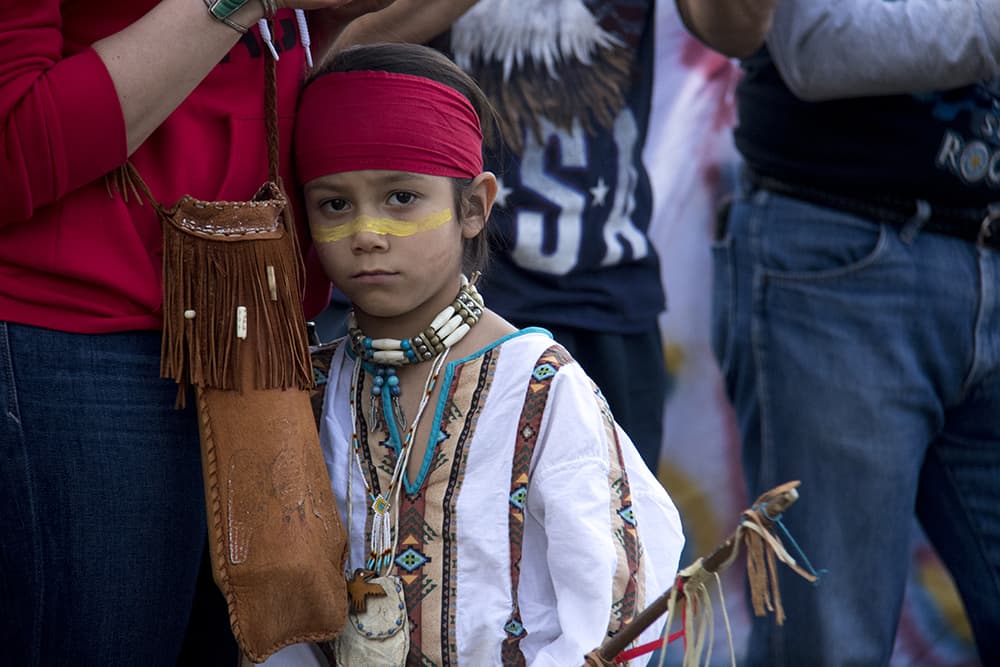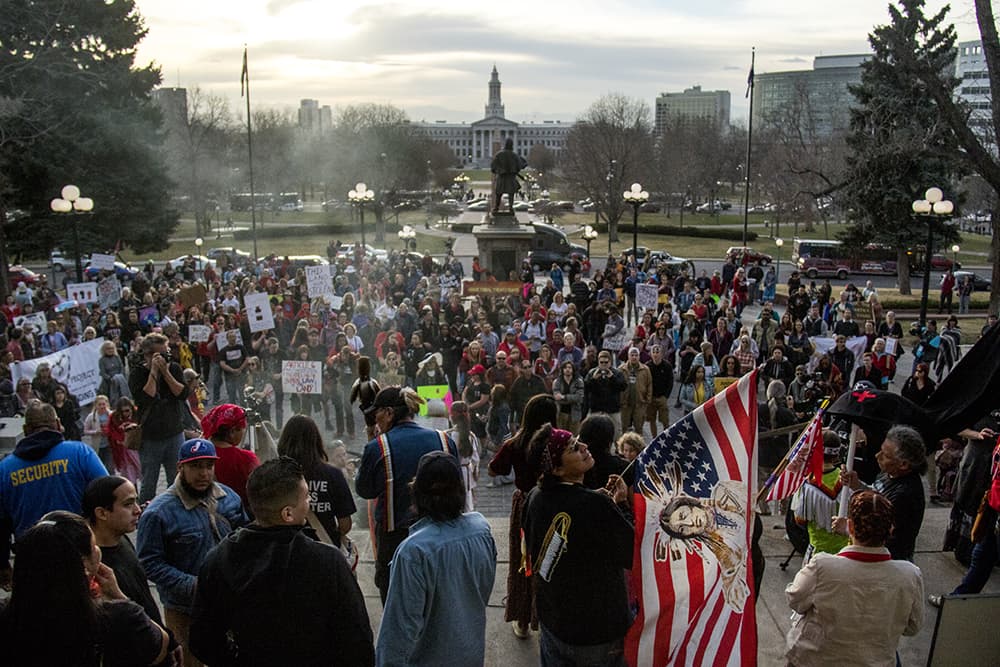
Right around rush hour yesterday a couple hundred protesters blocked traffic on Speer Boulevard as they walked from Sunken Gardens Park to the Capitol. Representing multiple indigenous tribes and allies, marchers shouted for the protection of all water and "Mother Earth."
While this can be seen in context to the Dakota Access Pipeline fight in North Dakota, shouts from the crowd eluded to a more general opposition to "colonial" capitalism and fossil fuel use at large.
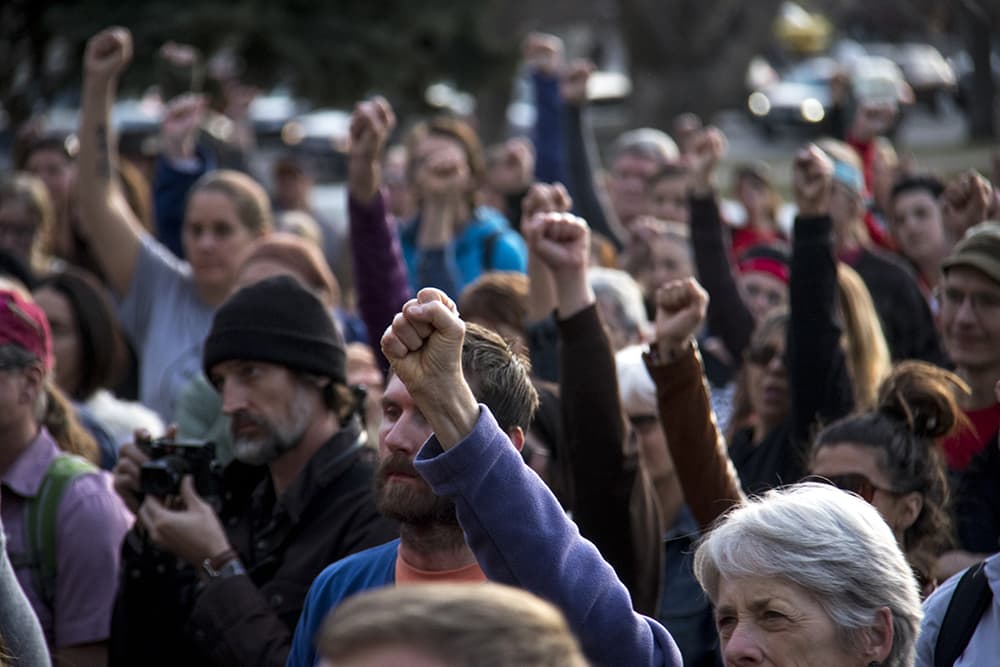
Before the march began, Robert Cross (his "white name") perhaps summed up the crowd's sentiment regarding these issues. Thinking of his future grandchildren, he said, "Are we gonna sit on the couch and watch tv and let all this stuff happen to us? Or are gonna know that we did our best for them?"
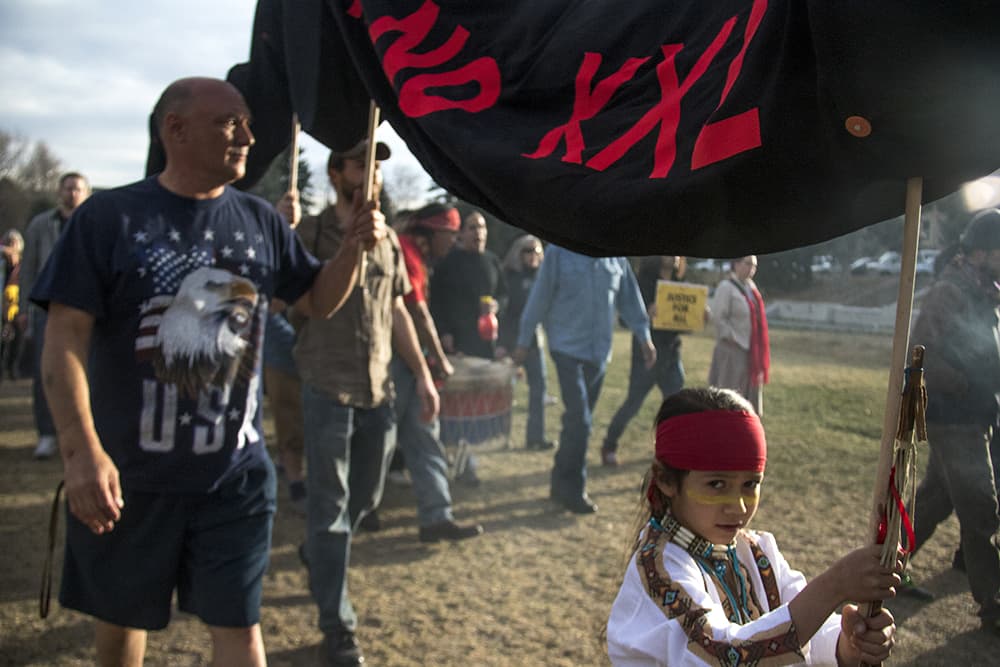
After a ceremony in Sunken Gardens Park, the crowd, assisted by Denver Police, processed down Speer to the Capitol, where speakers addressed the crowd.
In general it seemed this action was an extension of protests that began in camps in Standing Rock. After the tribe asked people to leave and law enforcement cleared out the rest of the camp people went home, in some cases, to Denver.

Benji Buffalo said he had recently returned from five months at camp. Thinking back to that time, he sighed, "You want to know what real PTSD is?"
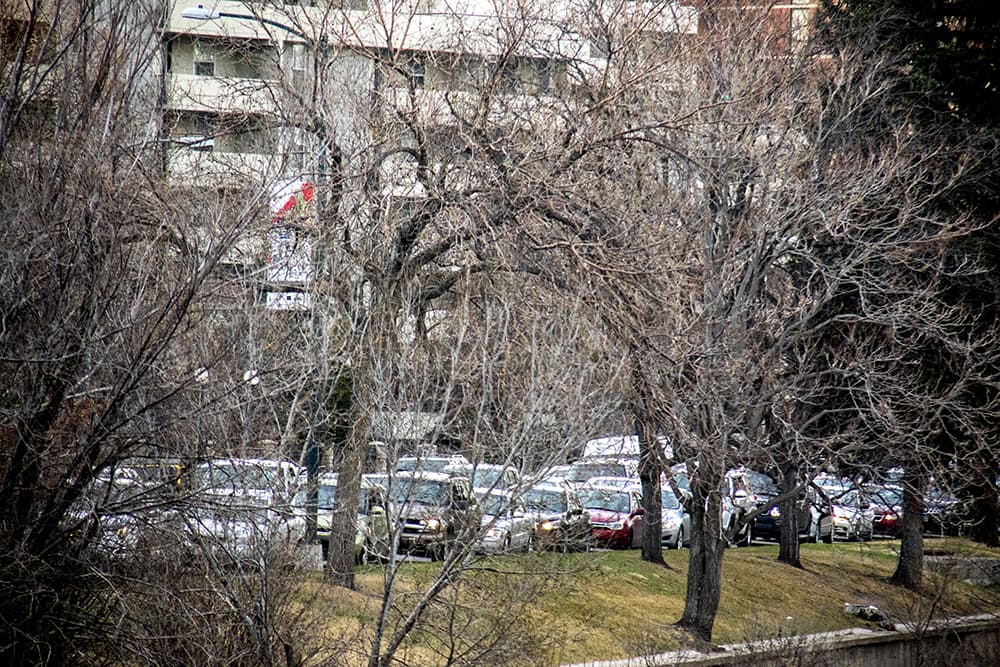
But for many indigenous activists here, the recent events in North Dakota are just a recent cause of trauma in a legacy spanning European settlers' entire time in this continent.
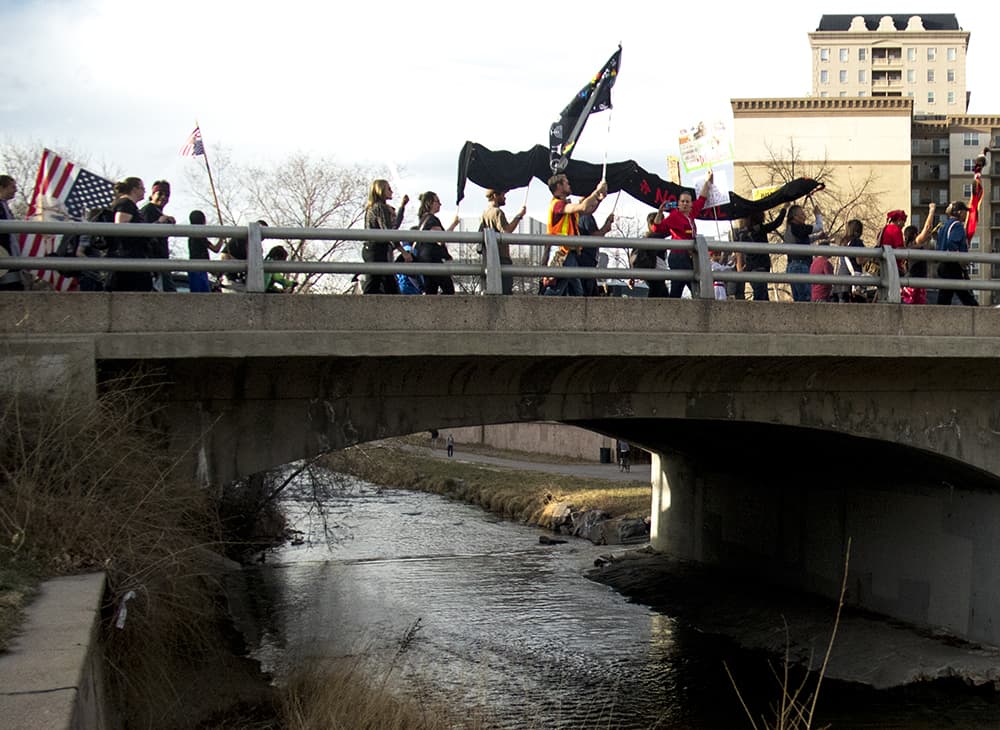
"We’re living in a system that doesn’t recognize my people as human beings," said Lakota activist Sun Rose Iron Shell. She told the crowd that the Pine Ridge reservation in South Dakota, her home, is still referred to as a "prisoner of war camp."
But Iron Shell and many other activists here see their time of struggle coming to end.
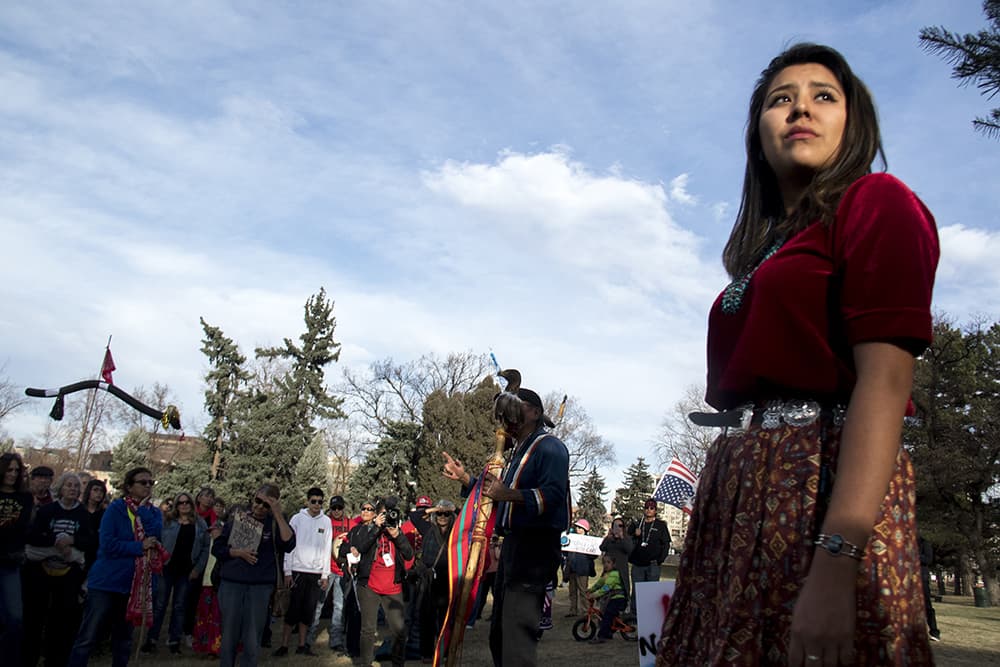
"An apocalypse is coming," she said. "My family has been here since before this capitol was built, and it will be here long after this capitol crumbles."

